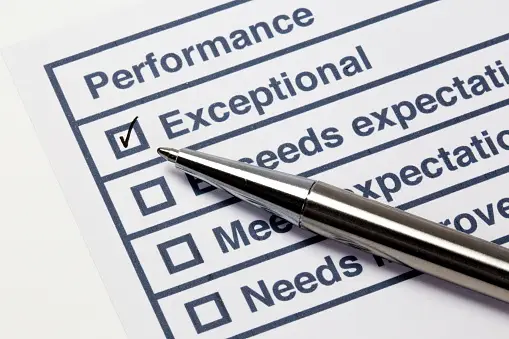
The traditional approach to reviews can actually undermine a crucial element of a healthy work environment
Performance reviews are a cornerstone of many workplaces, intended to provide feedback, identify areas for growth, and motivate employees. However, the traditional approach to reviews can actually undermine a crucial element of a healthy work environment: psychological safety.
What is Psychological Safety?
Psychological safety refers to an employee's belief that they can speak up, take risks, and share ideas without fear of negative consequences. It's the feeling of being safe to experiment, ask questions, and admit mistakes. When employees feel psychologically safe, they're more likely to be engaged, innovative, and willing to learn.
How Performance Reviews Compromise Safety
Here's how traditional performance reviews can create a climate of fear and apprehension:
- Focus on Judgment: Reviews often emphasize evaluation and ranking, leading employees to feel judged rather than supported. This fear of being labeled a "poor performer" can stifle creativity and open communication.
- Fear of Consequences: Reviews can be tied to bonuses, promotions, or even job security. This pressure can make employees hesitant to admit weaknesses or offer honest feedback, hindering growth.
- Inaccurate Feedback: Reviews often happen once or twice a year, leading to potentially outdated or biased evaluations. This can leave employees feeling confused or undervalued.
Creating a Safer Review Process
Here are some ways to make performance reviews a tool for growth, not fear:
- Shift the Focus: Move away from a purely evaluative approach. Focus on setting goals, providing ongoing feedback, and having regular check-ins throughout the year.
- Celebrate Learning: Encourage employees to discuss mistakes and challenges as opportunities for learning and development.
- Two-Way Street: Make reviews a conversation, not a monologue. Allow employees to self-evaluate and provide feedback on their manager's support and leadership.
- Focus on the Future: Use reviews to create a development plan with clear goals and action steps for improvement.
Building a Culture of Safety
Psychological safety goes beyond performance reviews. Leaders need to foster a culture of trust and openness where employees feel comfortable taking risks and sharing ideas. This can be achieved through:
- Encouraging Open Communication: Create regular opportunities for employees to share their thoughts and concerns without fear of reprisal.
- Leading by Example: Leaders should model vulnerability and open communication, demonstrating that mistakes are part of the learning process.
- Celebrating Small Wins: Recognize and celebrate both individual and team achievements, big or small.
By revamping performance reviews and fostering a culture of psychological safety, organizations can create a more engaged, innovative, and ultimately, successful workplace.